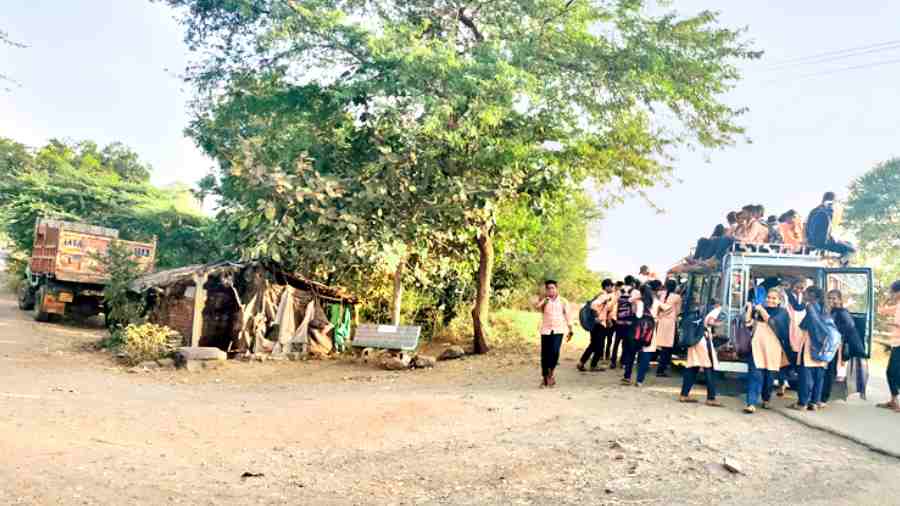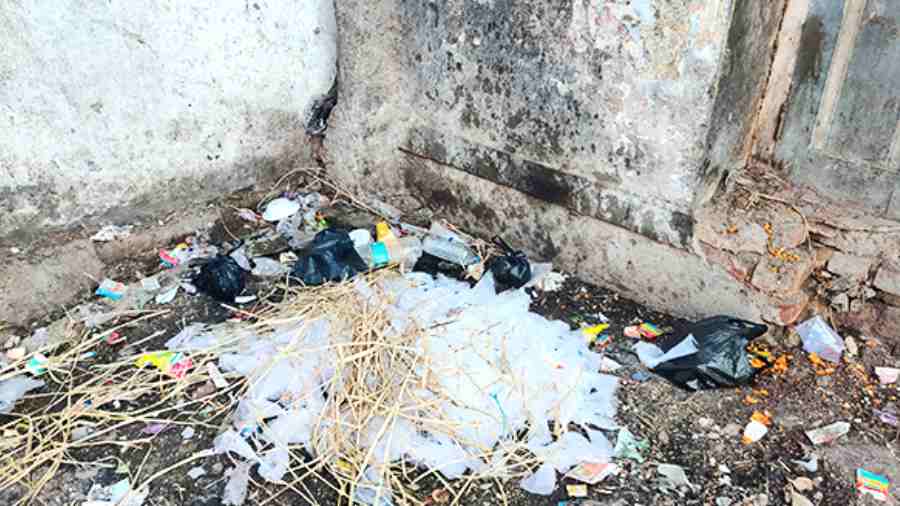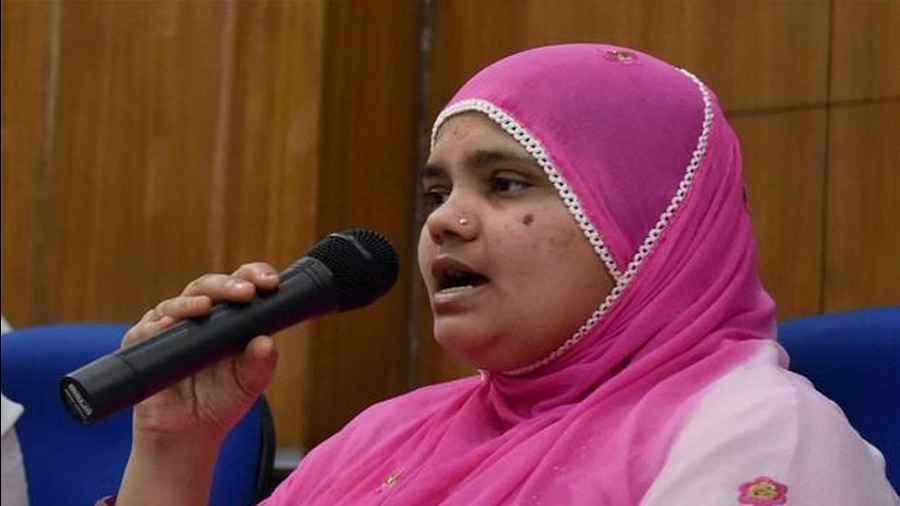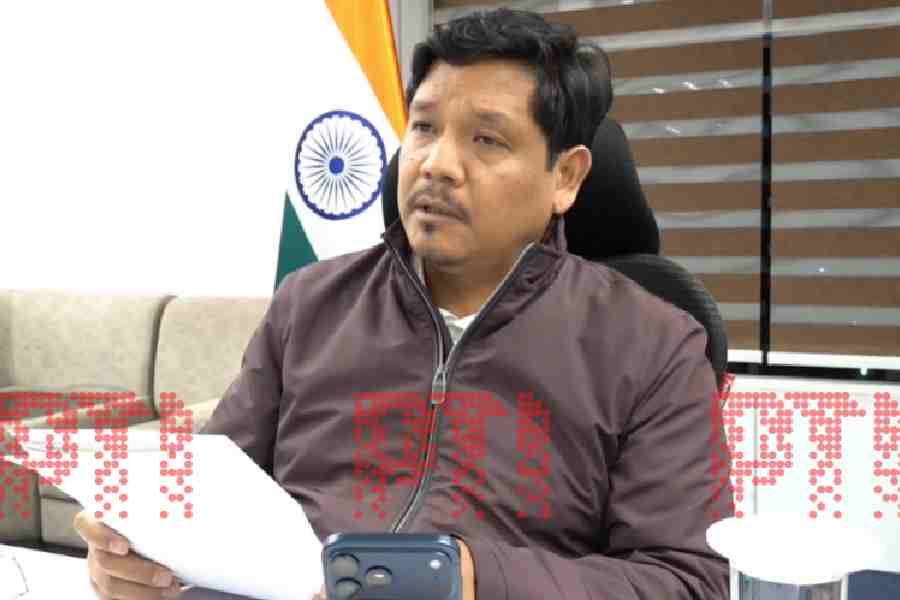The customer at the soft drink shop shoots back: “Write this: This is Hindustan. That is Pakistan.” The shop is on Station Road, a stretch of which separates Hindu and Muslim localities in Godhra in Gujarat’s Panchmahals district.
The customer’s remark is prompted by the question what he thinks of the release of 11 men, who were serving life sentences for murder and gang rape in the Bilkis Bano case, from the city’s sub-jail on the anniversary of India’s Independence.
The communal divide runs deep in Godhra, a dusty town with empty arrack pouches strewn on the streets despite Gujarat being a dry state. A train fire here that killed 59 pilgrims and kar sevaks was followed by riots across Gujarat in 2002. In one of the most brutal atrocities during the violence, a pregnant Bilkis was gang-raped and seven of her family members, including her baby daughter, murdered.
In the run-up to the Gujarat Assembly elections 20 years later, collective amnesia and blatant bigotry — and despondency on the other side — are the predominant responses of the electorate to the Bilkis case and the remissions, and subsequent celebrations by Hindutva groups.
The retort by the customer at Dilipbhai Hemanani’s shop comes in front of an elderly shopper wearing a skullcap, who ignores the remark. Hemanani intervenes, saying: “Relations are good between the two communities.”
He adds: “When the men were released, they were brought to a place nearby, where people gathered. They (convicts) said they had not committed the crime. I don’t know about the case, but if the Supreme Court has agreed to their release, then they must be innocent.”

Schoolchildren overloaded on a jeep in Randhikpur in Gujarat’s Dahod district on November 22. Pheroze L Vincent
The Supreme Court had on May 13 ruled not on the merit of the convictions but on whether the Gujarat government was entitled to decide on remission of the sentences, given the convicts had been tried in Maharashtra.
Hemanani says he is a fan of incumbent MLA and BJP leader C.K. Raulji, a member of the committee that decided on the remission plea.
“Look at his report card,” Hemanani adds, showing a BJP pamphlet listing the public works done in Godhra constituency during Raulji’s tenure. “The Kejriwal factor is there but it’s the BJP that will win.”
The “Kejriwal factor” stands for the Aam Aadmi Party’s (AAP) counter to the BJP’s slogan of “vikas” with its “Delhi model”. Despite being only the third player after the BJP and the Congress, the AAP seems to have fascinated many Gujaratis with its guarantee cards on free power for small consumers, promise of jobs or doles of Rs 3,000, and so on.
“The BJP should win so that we have to pay a tax to even sit here,” says Godhra scrap dealer Usman Seth. “Anybody — the AAP or the Congress — will be better than this government that doesn’t control inflation.”
He adds: “Yes, we are hurt about Bilkis. But that doesn’t matter in these elections. I hope the AAP wins or forms an alliance with the Congress because unlike others, they are only talking about work — not ‘Hindu-Muslim’. Who gives guarantees these days?”
In its long endeavour to refashion itself as a benign Hindu party, the AAP has stayed silent on the Bilkis convicts’ remissions, demanded images of Hindu deities on currency notes, and inducted Kesarisinh Solanki, a former MLA of the BJP, into the party here.
Solanki, whom the BJP did not field this time, is accused by victims of inciting a crowd in Undhela village, Kheda district, against Muslims — who were later flogged by police for allegedly disturbing a Garba event.
“I am sad that the AAP ignored Bilkis (remissions) but in Gujarat people are like this. What do we do? Even if we vote Congress, they become BJP later,” says Hussein, a shopkeeper, referring to defections from the Congress. Raulji too had previously been with the Congress and the Janata Dal.
Bilkis’s native village of Randhikpur, where most residents are from the Bhil tribe, has now been bifurcated to demarcate the larger part of the village as Singvad. Many local people claim not to have heard about the rape-and-murder case.
Several convicts in the Bilkis case are from this village in Dahod district. The crime took place in nearby Chhaparvad village in 2002. None of the convicts is tribal.
A Bhil woman had provided shelter to Bilkis and given her clothes to go to the police station after she regained consciousness.
“They (the freed convicts) have been sitting quietly in their homes after their release,” says Bhil shopkeeper Kalpesh. “The BJP is popular here as they have built a new school. This village was always a BJP stronghold. There is no talk of this case now as the Muslims have left. People here are happy that those who were in jail have finally returned.”
He adds: “We are torn between the BJP and AAP candidates (in the Limkheda constituency, reserved for Scheduled Tribes). They are both from nearby villages and many of us are related to both of them.”
Another Bhil youth, Sandeep, expresses ignorance about the Bilkis case. He points to a jeep with schoolchildren perched on top of it. “This should be an election issue. These kids can fall off while commuting to school. The government doesn’t run enough buses here,” he says.
Almost all Muslim families in Randhikpur, including Bilkis’s, now live in a slum in Devgadh Baria, another town in the district. Saktaarbhai, an elder from the Muslim ghetto, highlights Raulji’s reported remarks about the convicts — that “they are Brahmins; anyway, the sanskar (ingrained culture) of Brahmins is very good”.
“In such a system, we Muslims are cut like supari (betel nuts) between the BJP and the Opposition. No one has come to campaign in this slum. The release of those convicts was bad; but the truth is that no one really cares about us,” he says.
■ Polling in Panchmahals and Dahod districts is on December 5.











